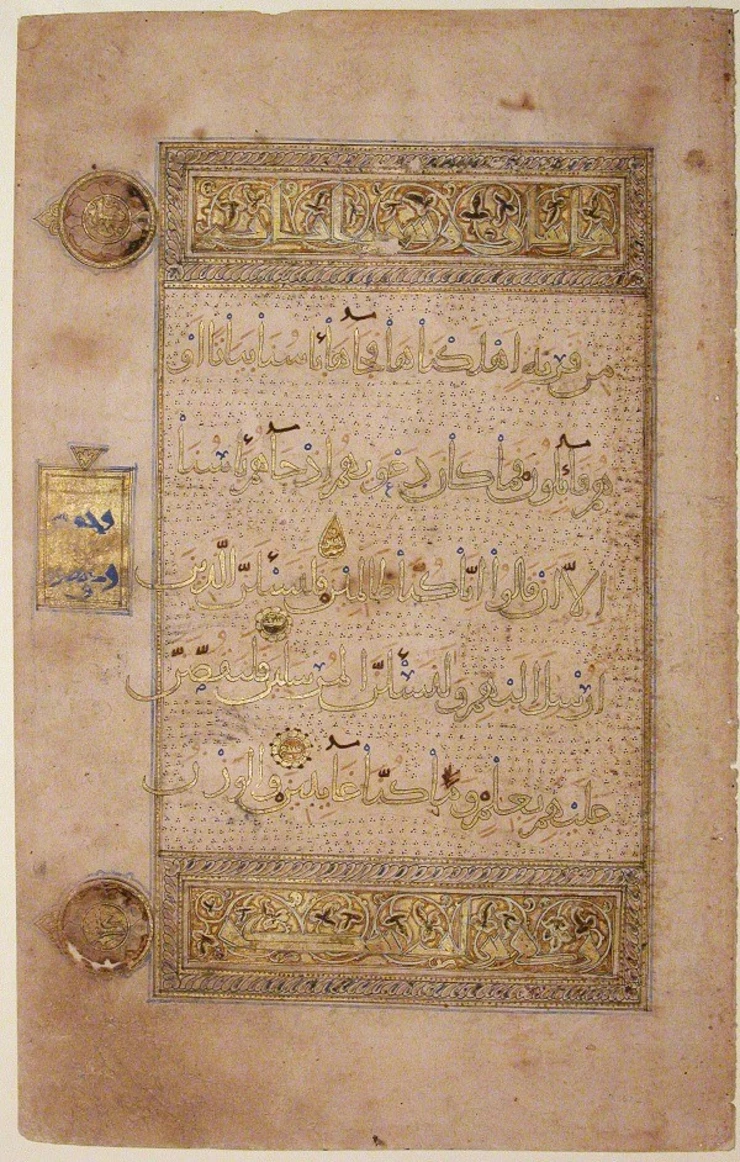
The subject of this talk is a Qur’an copied in the 11th century with illuminated pages added decades later that tell us it was ordered by the ruler of the Sulayhid dynasty in Yemen for the Fatimid caliph al-Mustansir (r. 427/1036-487/1094). The manuscript is now in Istanbul with some dispersed folios around the world. While it informs us of Qur’anic production in a period of major transformations, it is also a testimony to the circulation of manuscripts, diplomatic exchange and political power in the medieval period. The ‘Sulayhid Qur’an’ unfolds stories of connections and belonging within and beyond a short-lived dynasty in which a woman rose to a position of political prominence. It reveals the various stages in the life of a Qur’an, from the ways in which it was copied and illuminated to how it was appropriated and dispersed.
Alya Karame specialises in Islamic art and material culture. She is the recipient of the Paris Région award at the Collège de France where she is writing her first monograph on a forgotten corpus of medieval Qur’ans. Before that, she held numerous posts such as the Aga Khan programme fellowship for Islamic Arts at Harvard University and the Barakat Trust fellowship at the Khalili Research Centre of the University of Oxford.